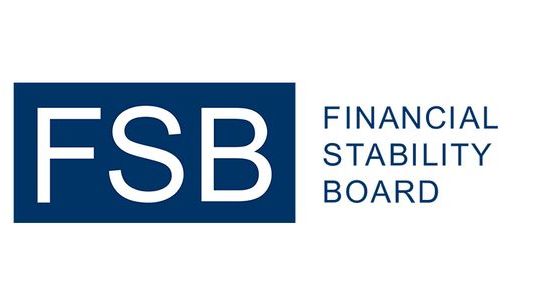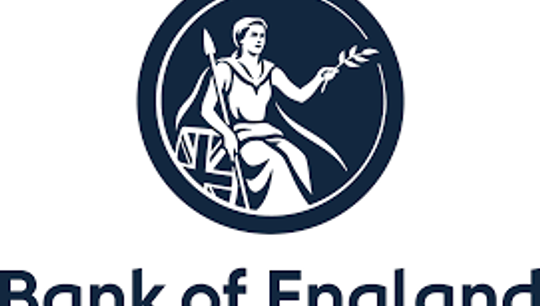Press Release: Asset management industry invites borrowers to look beyond the banks
Published: 17 June 2021
[Borrower's guide to private credit]
- Private credit managers lend more than £100 billion to over 2,000 UK firms
- Industry set to play a key role supporting UK business recovery post-COVID
- The guide provides case studies of how private credit has helped businesses and a jargon-busting glossary of key terms
- This guide will help UK SMEs understand the range of alternative financing options available to them
London, (17 June 2021): A new paper published by AIMA’s Alternative Credit Council (ACC) provides business owners with a comprehensive guide to accessing private credit.
Despite the growth of the private credit industry in the UK over the past decade, many business owners remain unfamiliar with private credit lenders.
The ACC’s introductory guide highlights the ongoing SME finance gap and how the growing private credit market can provide new capital for UK businesses.
As the guide highlights, private credit managers are well equipped to work in partnership with borrowers to help them grow and develop their business. Private credit managers already lend more than £100 billion to over 2,000 UK firms.
The guide provides an outline of how these lenders assess a business’ growth potential, a jargon-busting glossary of key terms, as well as case studies highlighting real life examples of how private credit has helped businesses invest and innovate. Examples of the featured case studies are included below.
In addition, this guide will help business owners understand the questions private credit lenders will ask as part of their due diligence, what to expect in a loan agreement, why lenders ask questions about sustainability and what they can expect once a loan has been made.
It is more vital than ever that SMEs across the country have access to the finance to invest and adapt to newer trends in customer demand and behaviour. This guide will help SMEs understand the range of finance options available to them and empower them make the right choice for their business.
Jiří Krόl, Global Head of the Alternative Credit Council, commented:
“Private credit managers are an increasingly important part of the business finance market, providing borrowers with tailored and flexible access to credit. Our industry moved quickly to provide support to businesses during the pandemic and will be instrumental in fuelling the recovery.”
Milly Camley, CEO, The Institute for Turnaround, commented:
“After sustained and unprecedented challenges, we welcome opportunities for businesses to access different finance options as they transform and adapt in a period of recovery. This report provides an accessible and articulate overview of the evolving and important private credit sector.”
For further information, please contact:
Laura Morrissey, Hume Brophy: [email protected]
Notes to the editors
BBI group financed by Ares
Headquartered in Wales, BBI Group (“BBI”) specialises in the provision of critical components and services to the in-vitro diagnosis (“IVD”) industry. The global business operates across six sites with c.400 employees through two divisions: i) BBI Solutions (~85% of EBITDA) provides critical components for diagnostics testing to a diverse range of life science and food safety companies, and ii) BBI Healthcare (~15% of EBITDA) is consumer focused and provides prescription and over-the-counter natural products. The company is owned by Exponent Private Equity (“Exponent”).
In April 2020, Exponent was interested in working with a lending partner to support the refinancing of existing BBI debt as well as the acquisition of a complimentary business target in Germany.
The European Direct Lending strategy of Ares Management Corporation (“Ares”) was well positioned to be the direct lending partner given an ability and willingness to provide certainty for the full financing requirement, including additional follow-on funding notwithstanding heightened uncertainty in the market due to COVID-19. Ares also had prior experience in the IVD sector, having previously reviewed and screened a number of IVD manufacturers and reviewed and financed assets in the healthcare space more generally.
Subsequently in May 2020, Exponent mandated Ares as the financing provider of a £115 million first lien facility with a further committed acquisition facility and stapled equity investment alongside management and Exponent.
Following its due diligence, Ares was comfortable lending to BBI, on the basis of the following characteristics it determined to be exhibited by the business:
- Established position as the sole supplier to a diversified portfolio of blue chip customers
- Strong barriers to switching providers due to a lengthy and costly supplier re-registration process
- Strong safety and regulatory compliance track record
- Highly experienced management team and sponsor, with a track record of organic growth and demonstrated ability to win new business
- Attractive financial profile with stable product margins
Scottish real estate investment financed by Omni Property Finance
In November, Omni Property Finance Limited (“OPFL”) was approached by a Scottish borrower who focuses on purchasing distressed properties (at a discount). The borrower typically identifies assets to refurbish and hold as part of his income-producing property portfolio. The borrower was seeking finance to acquire a four-story commercial building near the central rail station in Glasgow, Scotland and needed to act quickly. A few months earlier the borrower had identified the building as a potential investment opportunity and participated in a tender offer process. Having been outbid, the borrower shifted his attention to other acquisition targets.
The agent got back in touch with our borrower after the original purchaser was unable to secure financing. The agent accepted the borrower’s discounted bid subject to a short completion time frame. After the borrower contacted OPFL, the underwriting process commenced immediately. The borrower was able to complete within the stipulated timeline – the acquisition was finalized within two weeks of initial contact. The loan was structured with a 15-month term at a loan-to-value of 60%. The borrower will meet interest payments from rental income and the 15-month duration allows the borrower sufficient time to refinance the loan on to a long-term commercial refinance.
About the ACC
The Alternative Credit Council (ACC) is the global body representing asset management firms in the private credit and direct lending space. It currently represents over 200 members that manage $450 billion of private credit assets. The ACC is an affiliate of AIMA (the Alternative Investment Management Association). It is governed by its own board which ultimately reports to the AIMA Council. ACC members provide an important source of funding to the economy. They finance mid-market corporates, SMEs, commercial and residential real estate developments, infrastructure and the trade and receivables business. The ACC provides guidance on policy and regulatory matters, supports wider advocacy and educational efforts and produces industry research to strengthen the sector's sustainability and economic and financial benefits. Alternative credit, private debt or direct lending funds have grown substantially in recent years and are becoming a key segment of the asset management industry. The ACC seeks to explain the value of private credit by highlighting the sector's wider economic and financial stability benefits.
About AIMA
The Alternative Investment Management Association (AIMA) is the global representative of the alternative investment industry, with around 2,000 corporate members in over 60 countries. AIMA’s fund manager members collectively manage more than $2 trillion in hedge fund and private credit assets. AIMA draws upon the expertise and diversity of its membership to provide leadership in industry initiatives such as advocacy, policy and regulatory engagement, educational programmes and sound practice guides. AIMA works to raise media and public awareness of the value of the industry. AIMA is committed to developing skills and education standards and is a co-founder of the Chartered Alternative Investment Analyst designation (CAIA) – the first and only specialised educational standard for alternative investment specialists. AIMA is governed by its Council (Board of Directors).







